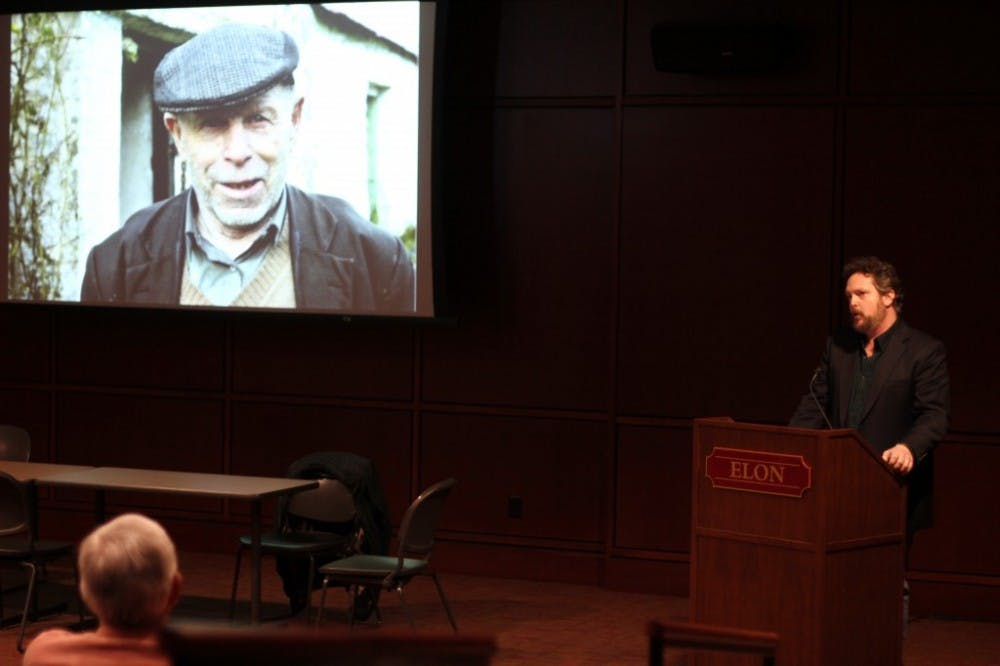On March 18, Elon’s Program for Ethnographic Research and Community Studies (PERCS) hosted Ray Cashman, an associate professor of folklore at Ohio State University, in LaRose Digital Theatre.
Cashman has done extensive fieldwork throughout Ireland, specifically along the socioeconomically disadvantaged borderlands of Northern and Southern Ireland. He is the author of “Storytelling on the Northern Irish Border: Characters and Community,” for which he won the Chicago Folklore Prize from the American Folklore Society and the Donald Murphy Award from the American Conference for Irish Studies.
“Power makes you inattentive,” Cashman said. “The people at the bottom of the social ladder can’t afford to be inattentive. However as a matter of survival, they’re always checking what they’re told against what they see.”
Students and community members eagerly awaited Cashman’s presentation, “Folklore on the Irish Borders: A Voice from the Margins.”
“I really came because I have an Irish background and I’m curious about the folklore because a lot of it has been transferred into the Appalachian Mountains of North Carolina,” said freshman Randall Jackson.
Sophomore Julie Philips came to be reunited with her Winter Term study abroad class, “Ireland: An Introduction to Its Literature, Culture & History.”
During his presentation, Cashman discussed his current work concerning Irish storyteller Packy Jim McGrath, who has mastered the technique of not only recounting folklore, but also using his tales to critique social values and challenge common assumptions of poverty.
An example of such a metaphor includes McGrath’s retelling of the creation of fairies, described as the angels who refused to take sides during God’s original battle with the biblical Lucifer. The fairies were exiled to the newly created Earth for their pride.
Correspondingly, McGrath tells a colorful account of how he was verbally bashed by a pub patron for being an impoverished bachelor. The man belittled McGrath and questioned his intelligence and sexuality. McGrath said he observes a pride in those who unrightfully elevate themselves above others, which is just as dangerous as the arrogance of the celestial beings who refused to side with their maker.
“‘The Irish personality is that if you’re a wee bit simple, they’ll try to make you worse, or a wee bit foolish, they’ll try to make you foolisher. They play on what they think would be your weak point,’” Cashman said, quoting McGrath. “That’s the Irish. In every location there’s somebody and they’re made to be a scapegoat – that’s as far as I know a trick of the Irish. Every Irishman is not like that now, but there’s a quality of them that’s mostly like that.’”
Cashman demonstrated how through storytelling, this poverty-stricken individual can provide insight into the Irish psyche.
“Voices from the margin are in many ways bound to compare high and low, challenge dominant narratives and subvert received hierarchies of value,” Cashman said. “You would do well to listen, to be attentive and to reconsider what we assume we know.”


